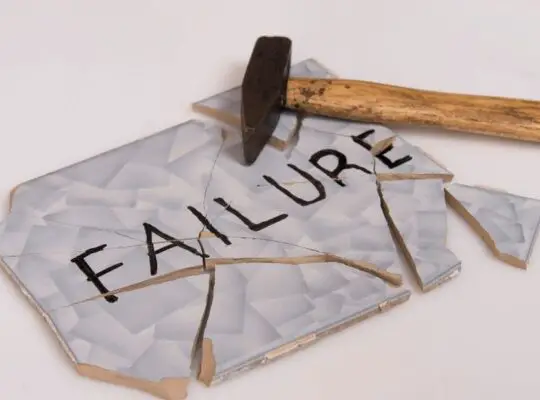A chaotic mind is nothing to take lightly. With stimuli constantly pulling your attention in a hundred different directions it can feel nearly impossible to focus your efforts on that which really matters to you. Without the ability to organize your mind, you might spend a lifetime trudging through mental mud without ever really reaching the finish line. It’s time you clear the mess.
Here are 10 tips to organize that busy mind of yours and finally put an end to the chaos.
1| Know your priorities.
Sometimes it can feel like we’re lost in the wilderness choosing between food and water. We have so much we need to do as well as more that we desire to do. With all these competing requests we have to be able to recognize which will take higher priority, and which ones we might have to let go of. Instead of forcing your mind to multitask several different processes at once, you can choose and focus on specific tasks in order of their importance to your current life situation and goals.
2| Know when to let go.
Persistence is an amiable trait to have, but it’s important to know when you’re stuck beating a dead horse. If time and energy are limited, then pouring these resources into areas you simply can’t move forward is robbing you of your other needs.
Knowing when to let go of something doesn’t always come easy. Start by learning to walk away from something when it’s clear that no headway is being made. With some distance, you’ll be able to gain a better perspective of the situation, giving you the clarity you might need to let go.
3| Write your thoughts out.
Have you ever had a song so stuck in your head that you just needed to listen to it in order to move on? Sometimes a similar process is required for our thoughts. When thoughts play on a loop inside your mind, writing them out can be a very informative method of working through them. Not only does it allow you to view the information apart from the rest of the noise in your head, but it also saves the thought for future use if you need to step away and focus on something else in the meantime.
4| Don’t multitask.
Not only should you avoid juggling tasks in your mind, but you should also avoid multitasking in the literal sense. Multitasking is not helpful. Too often we confuse strategizing with multitasking, such as, on my way to the grocery store I’ll drop off my books at the library. This is having a strategy and a plan.
Imagine shopping at the grocery store, then driving back to the library every other aisle to drop off a book. This would be ridiculous, and while it would complete the two tasks, it would do so in a highly inefficient way. Physical tasks require mental support and forcing your mind to switch back and forth between these two needs can lead to burnout, stress, and failure.
5| Take a moment for yourself.
Breathe away the chaos. No, really. Consciously breathing tells the brain to tell our nervous system to slow our heart rate, promote calm feelings, control the stress hormones, and even slow our digestion! Guided breathing exercises like mediation can be great ways to encourage mindfulness, reduce mental overload, and focus our mental energy on the present.
6| Keep an organized space.
Our brain receives stimulating information from our surroundings. This process keeps us safe and allows us to subconsciously make vital decisions about the world around us. This is why a messy or disorganized space can be so destructive to our focus.
Not only does this promote unnecessary chaos in the mind, but it also poses a much larger threat of distraction. Take some time to clean and organize the environments around you, and you’ll likely find a noticeable difference in your ability to stay focused on your tasks.
7| Don’t put off decisions.
A lot can go into a decision. We might weigh the pros and the cons. Maybe you have an experience that pushes you one way or another. You might even have pressures by family, friends, a boss, or colleagues. With all this influence, small decisions can become increasingly weighty on our conscience.
Sometimes we know what we want to do, we’re just afraid to commit to it, so we put it off. The problem with putting off decisions is that they never really disappear. Their lingering questions, anxieties, stress, and pressures stay with you, clogging up the mind in its pursuit of other completely unrelated tasks. Get into a habit of making decisions as quickly as is responsible for the given situation.
8| Talk your thoughts through with others.
It helps to have good friends, coworkers, or family members you can come to with your thoughts. Journaling can be great, but sometimes we just need another person to work through something with us. Even if you aren’t seeking knowledge or counsel at the moment, talking thoughts out can be an incredible way of releasing your mind from a mental block.
9| Limit the external consumption of information.
While ignorance isn’t necessarily bliss, information overload can be mental anguish. After spending hours on our phones, watching the news, reading online articles, and mindlessly scrolling social sites, it stands to reason that our brains might become buried in information. In moderation, all these things can serve a purpose in your life. But the next time you find yourself in a position where you are attempting to focus on a project or an objective, try and limit these external stimuli.
10| Keep a healthy brain.
Brain fog can occur when you don’t do enough to care for the health of your mind. Lack of sleep, nutrition, exercise, and even relaxation can leave your brain exhausted and struggling to keep up. When this happens, it can become harder for you to narrow your focus. Memory declines with your functionality, and your overall mental state suffers as a result of being poorly taken care of. If organizing your brain is a goal of yours, make a habit of protecting and nurturing your mind.
With these 10 tips, you can put a stop to mental chaos and organize your mind!







